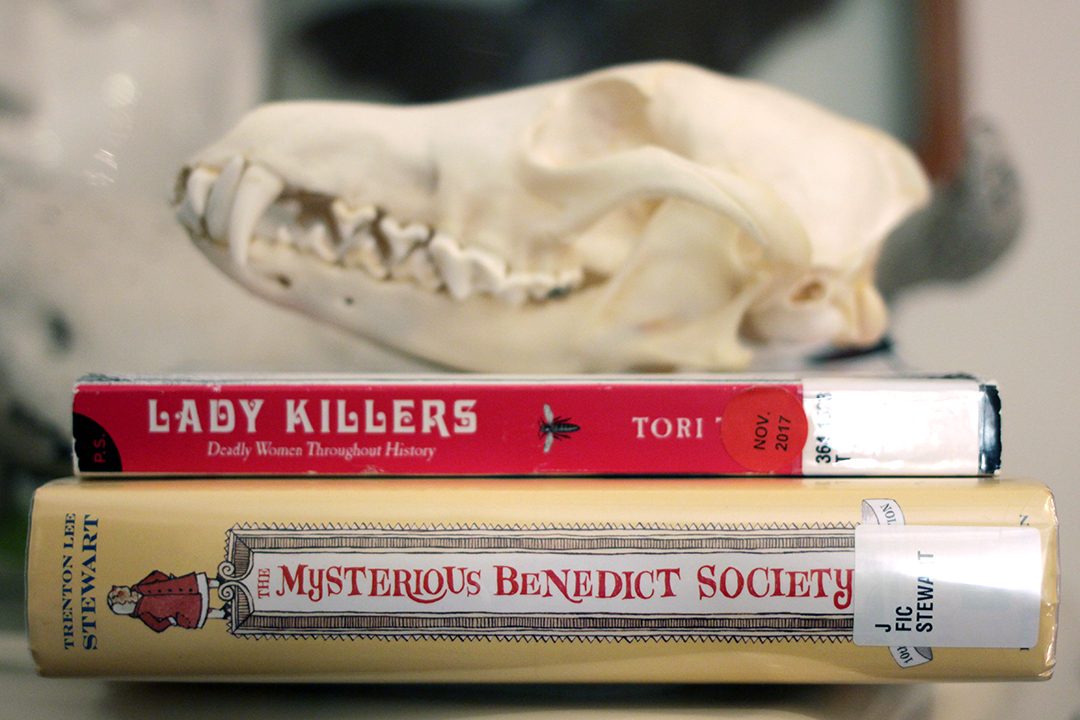Recent Reads
Cannibalism: A Perfectly Natural History, by Bill Schutt
This was one of those books that I'm sure got me flagged on some government list somewhere when I checked it out at the library. If anyone close to me ever gets suspiciously murdered, I'm definitely a goner when they submit my library checkout history into evidence. But, despite this book having a macabre title, it's actually more about science than sensationalism.
It took a little time for me to really get into this book—I know there are frogs on the cover, but I didn't expect to be reading so much about tadpoles and snails—but when the discussion turned to humans I was hooked. Schutt even mentions that he deliberately doesn't give much space to criminal cannibalism since it's been overplayed, and in hindsight of course he's right. Understanding all of the factors—both environmental and evolutionary—that drive a species to consume their own kind isn't necessarily as riveting as reading about Ed Gein and his human nipple belt, but now I'll have the necessary background when I do.
The Poisoner: The Life and Crimes of Victorian England's Most Notorious Doctor, by Stephen Bates
I really wanted to love this book, but maybe it was a bad omen that I renewed it four times at the library before finally starting it. It was also just, not that great of a book. The story of William Palmer is mildly interesting, but pretty standard as far as Victorian-era poisonings go (and I've read about quite a few of them). Bates is also not a great writer, and one reviewer pointed out that it seemed as if he was being paid by the word, which I know was a joke but also, I hope that's true—otherwise this book is about 150 pages too long for absolutely no reason.
Where other writers might think it was their job to summarize primary sources, Bates just excerpts them in the text—over and over and over again. By the end of this book I was just skimming for new information, which was increasingly sparse. I'm not sorry I finished it, but now I understand why twelve weeks went by without anyone else in the New York City library system requesting a copy.
Manson: The Life and Times of Charles Manson, by Jeff Guinn
As soon as I heard that Charles Manson had died, I realized I knew very little about his life and immediately reserved this biography at the library. I have always wanted to read Helter Skelter, but after reading Jeff Guinn's book about Jim Jones, I knew this biography would be a good read. It exceeded even my high expectations, and is easily one of the best biographies I've ever read.
Manson is notorious of course, for orchestrating a series of nine murders in the summer of 1969, but I discovered that there was so much more to him and his followers than just the highlights. The facts of Manson's life are fascinating on their own, but Guinn is such a good writer that I want him to write about every cult leader and serial killer that he possibly can and I wish I could pre-order all of them.
Lady Killers: Deadly Women Throughout History, by Tori Telfer
I enjoyed the premise and the tone of this book, but the actual stories themselves were all a little too repetitive by the end. Telfer explains in the conclusion why she didn't include any modern serial killers—the most recent story is from the 1950s—but I eventually tired of reading about yet another woman accused of poisoning several of her husbands, hundreds of years ago. Maybe my reception of this book just signals that I should take a break from the murder/poison genre for a while, but after finishing one of the stories about a woman and her delicious meals full of "white granules," I will never look at a sea-salt caramel the same way again.
The Mysterious Benedict Society, by Trenton Lee Stewart
I can't count how many times I'd seen this book in the ten years since it was first published and thought "I know I'm going to love this book." It was partially the title, and partially the excellent cover illustration (and typography), but my intuition was spot on: I loved this book. I was wary of the length when I picked it up from the library, but I shouldn't have worried—I tore through it and finished it in five days. I've seen comparisons drawn from Stewart to Roald Dahl and Lemony Snicket, which are both accurate but TMBS also reminded me a lot of my all-time favorite YA mystery book, The Westing Game.
I've always been a voracious reader, and exclusively read fiction as a kid. Young me would have been obsessed with this book, but turns out 32-year-old me was just as obsessed. I somehow got into a non-fiction rut as an adult, and almost forgot how transporting a really good novel can be. This book is technically young adult fiction, but it never feels childish. I loved the characters and the puzzles and I really couldn't (or at least didn't want to) put this book down until I knew how it ended. There are two others in the series (and two more supplemental books) that I will definitely be reading soon, because like any truly great book, I raced to the finish and then felt inexplicably sad that it was over.


